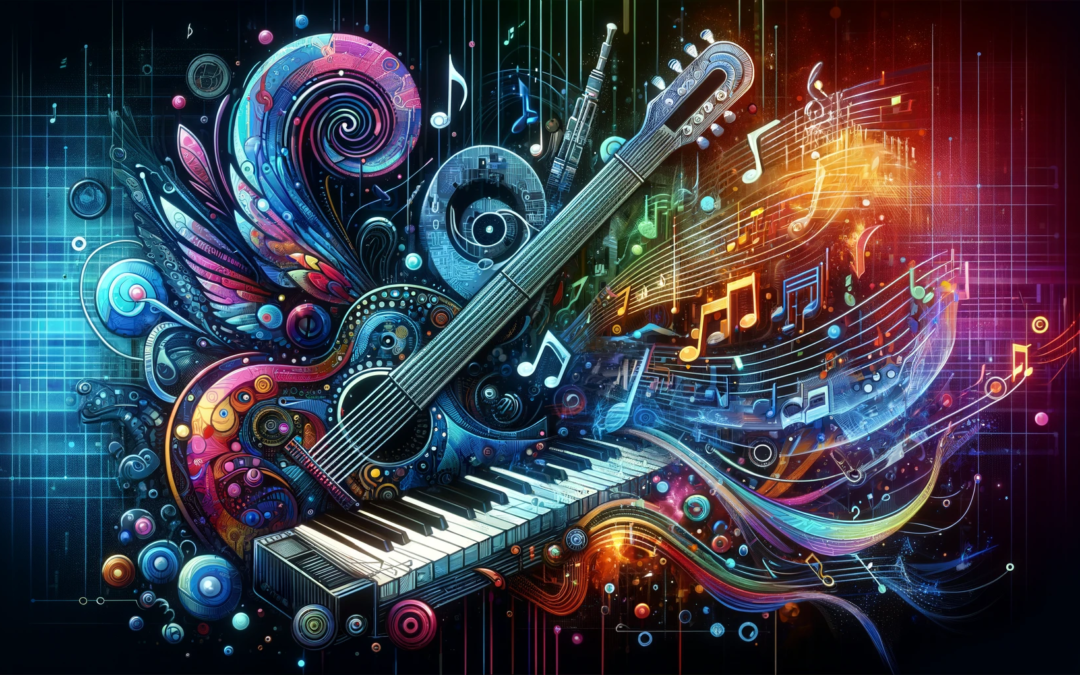The landscape of music creation and production is constantly evolving, and one of the most intriguing influences in recent years has been the rise of AI. This powerful technology is not only aiding artists in creating new music, but also challenging traditional notions of creativity and authorship in the music industry. In this blog post, we will explore the impact of AI on the creative arts, specifically in music composition and production.
AI in Music Composition:
AI has proven to be a valuable tool in music composition, capable of generating melodies, harmonies, and even complete musical pieces. With the ability to analyze vast amounts of musical data and learn from existing compositions, AI algorithms can produce music that is both innovative and familiar. Collaborations between AI and human artists have resulted in fascinating blends of human emotion and machine precision.
AI in Music Production and Sound Design:
The role of AI in music production goes beyond composition. AI-powered tools and platforms assist in sound design, mixing, and mastering processes, allowing artists to achieve professional-level production quality with ease. From intelligent audio plugins to virtual assistants that enhance workflow, AI is revolutionizing the way music is produced and refined.
Personalization and Recommendation Systems:
AI algorithms have also transformed the way we discover and engage with music. Personalization and recommendation systems powered by AI curate playlists and tailor music recommendations to individual listeners’ preferences. These algorithms analyze user behavior, musical taste, and contextual data to deliver a personalized music listening experience. The result is a more immersive and enjoyable music journey for listeners.
Ethical and Artistic Considerations:
As AI becomes more involved in music creation, ethical and artistic questions arise. The concept of originality is challenged when AI can generate music that is indistinguishable from human compositions. Copyright issues and the role of the human artist in a world where AI is a creative force are topics that spark heated debates among musicians, producers, and listeners alike.
Impact on the Music Industry:
The influence of AI on the music industry is undeniable. From changing the way music is produced to impacting how artists are discovered and promoted, AI is reshaping the industry landscape. It has opened up new avenues for independent artists to create and distribute music, while also presenting challenges for established industry professionals to adapt to this technological revolution.
The Future of AI in Music:
Looking ahead, the future of AI in music is both exciting and uncertain. As technology continues to advance, we can expect further transformations in music composition, production, and consumption. Will AI ever replace human creativity entirely, or will it serve as a powerful tool that enhances our artistic capabilities? The long-term implications of AI on the music industry are yet to be fully understood.
Engaging with the Audience:
We invite you, our readers, to share your thoughts and experiences with AI-created music or AI-driven music platforms. Have you discovered new artists through personalized recommendations? What are your thoughts on AI’s role in the creative process? Let’s spark a discussion and explore the potential benefits and challenges of AI in music together.
Conclusion:
AI has undoubtedly made its mark on the creative arts, particularly in the realm of music. It has revolutionized music composition, production, and consumption, challenging traditional notions of creativity and reshaping the music industry. As we embrace the technological advancements, it is crucial to strike a balance between innovation and preserving artistic integrity. The future of music in the age of advanced AI holds immense potential, and we are excited to witness its continued evolution.
Visual Elements:










